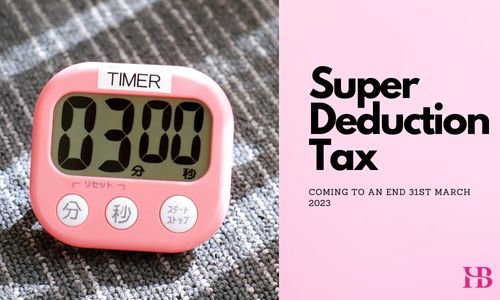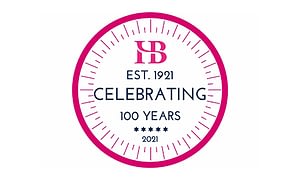With the enhanced ‘super deduction’ capital allowance coming to an end, it may be worth making a capital purchase or entering into a contract for such a purchase, over the next few weeks. This needs to be weighed up against commercial need and consideration of the impending corporation tax rises. Here’s what you need to consider

What is a super deduction?
The end of the month brings the end of a 130% super-deduction capital allowance on qualifying plant and machinery investments. This non-capped allowance was introduced in 2021 and has allowed companies to cut their tax bill by up to 25p for every £1 they invest. In addition, for special rate expenditure, a 50% first-year allowance has effectively provided for ten years of writing down allowances in the first year (the “SR allowance”).
Why is there a super deduction?
The allowance was introduced to encourage firms to invest in productivity-enhancing plant and machinery assets and to boost economic growth post-lockdowns. With the end of the allowance in sight, it could be a good time for businesses to make those high-expenditure purchases.
There is online help to out the benefit of super deductions for your business.
Who can claim a super deduction?
A limited company can benefit from the super deduction on new plant and machinery only. Second hand assets are not allowable. Purchases must be for direct use withinyour business.
How does the super deduction work?
Companies investing in qualifying new plant and machinery assets will benefit from a 130% first-year capital allowance. This upfront super-deduction will allow companies to cut their tax bill by up to 25p for every £1 they invest.
What can be claimed as a super deduction capital allowance?
- Solar panels
- Ladders, drills, cranes
- Office chairs and desks
- Electric vehicle charge points
- Refrigeration units
- Compressors
- Foundry equipment
Not an exhaustive list
For consideration: Super Deductions vs Corporation Tax Rises
If you have not made your capital purchase yet, it is worth considering when to make a purchase: either before or after 31st March. Whilst super deductions deliver great benefits, 1st April heralds corporation tax increases from 19% to 25% for the majority of companies.
Of course, tax is only one factor in a company’s capital expenditure processes and wider commercial factors should be considered too. Whilst the acceleration of capital expenditure may be sensible, uncommercial decisions could be challenged by HMRC.
Analysis will help you decide what is best for your business and our tax specialists are on hand to help. If you would like to talk, call us on 01992 444466. We’re experts ready to support you and your business, no matter your company size or sector.
.

Read our latest blogs below
- Help for Businesses with Paying Energy Bills
- Be Scam Alert: Companies House fake message
- Year End Tax Planning Guide – 2022-23
- HMRC announces further delay to Making Tax Digital for Income Tax Self Assessment – MTD for ITSA
- Updated Advisory Fuel Rates (AFR) from HMRC
The information contained above is for general guidance purposes only. Whilst every effort has been made to ensure the contents are accurate, please note that each individual has different circumstances and it is essential that you seek appropriate professional advice before you act on any of the information contained herein. HB Accountants can accept no liability for any errors or omission or for any person acting on or refraining from acting on the information provided in the above

